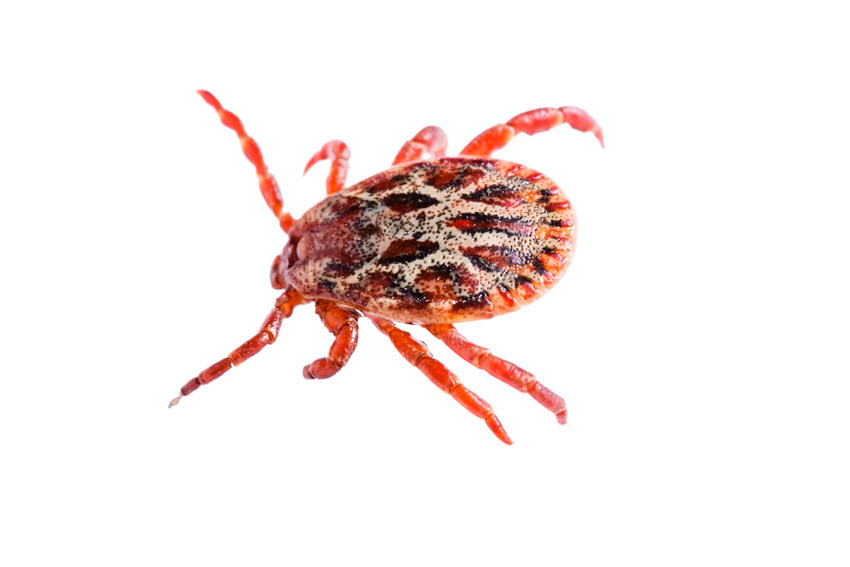The thought of fleas will probably have your skin crawling. These creepy critters can infest your furniture and carpets as well as your pets, so make sure you are constantly on the look out for a home invasion.

A dog with fleas scrathing at its head
Fleas can be very irritating for your dog and can make them very restless. If you notice any dry skin or persistent scratching then your dog probably has fleas. Common flea symptoms include scratching a lot around the collar and biting around the back end and tail.
To check for fleas back-comb your dog’s hair around his tail and examine his skin for little, black spots. These black spots are flea faeces, which when put in water turn it a light red. Alternatively, you can catch the flea faeces on a damp, white paper towel, and wait for the spots to turn the towel red.

A Border Collie lying down outside on the grass
How To Apply Flea Treatment To Your Dog
Flea medication usually covers against both fleas and ticks. The most effective method of applying flea treatment is to administer a contact medication onto your dog’s skin. Make sure that you don’t just administer the flea medication onto your dog’s hair as it will not be absorbed and will make it less effective. It is also important that you don’t try and rub the flea treatment in because your dog might not receive the correct dosage.
Avoid applying the flea treatment to areas on your dog’s coat where he can reach so he can’t lick it off. The best places to apply flea treatment is down your dog’s back as well as above and below your dog’s collar. Apply the flea treatment provided by your vet and don’t forget to treat all of your animals at the same time, otherwise the problem will reoccur.
Ask your vet how much treatment you should apply at one time as well as how often you should apply it. They will provide you with the correct dosage for your dog’s weight and size and will be able to give you any information regarding how to apply a particular flea prevention product.

A close up of a dog flea
New flea and tick collars are now available. They last around 7-8 months - speak to your vet for details.






Comments
There are no comments just yet